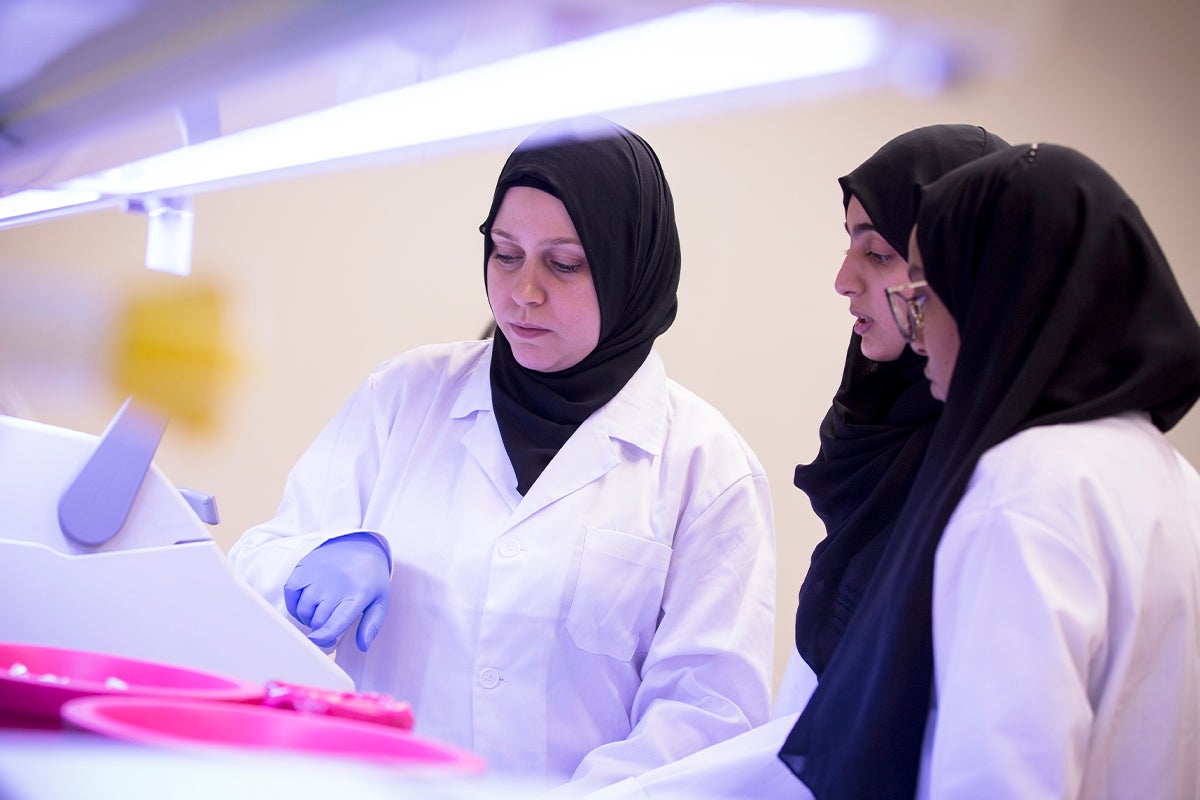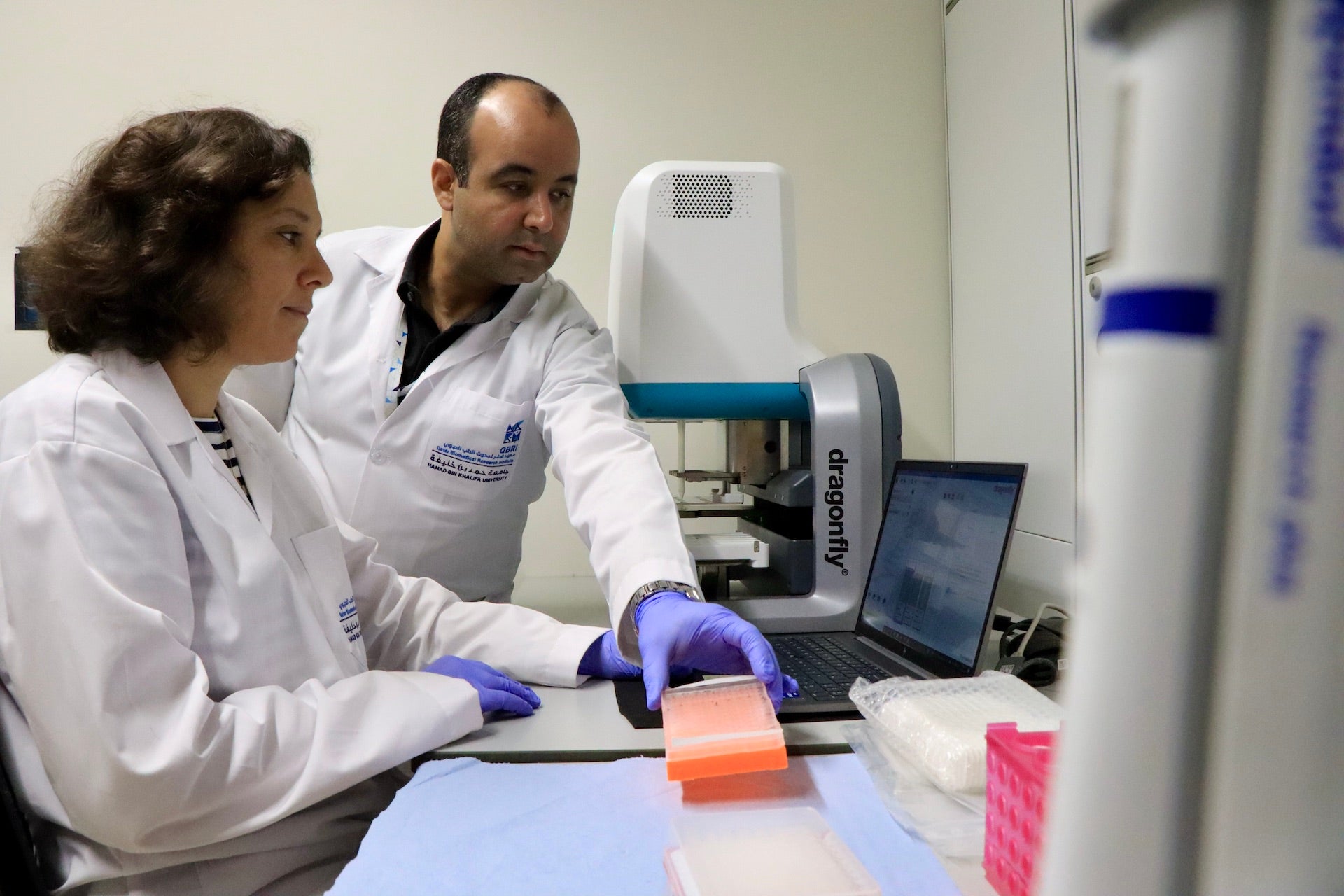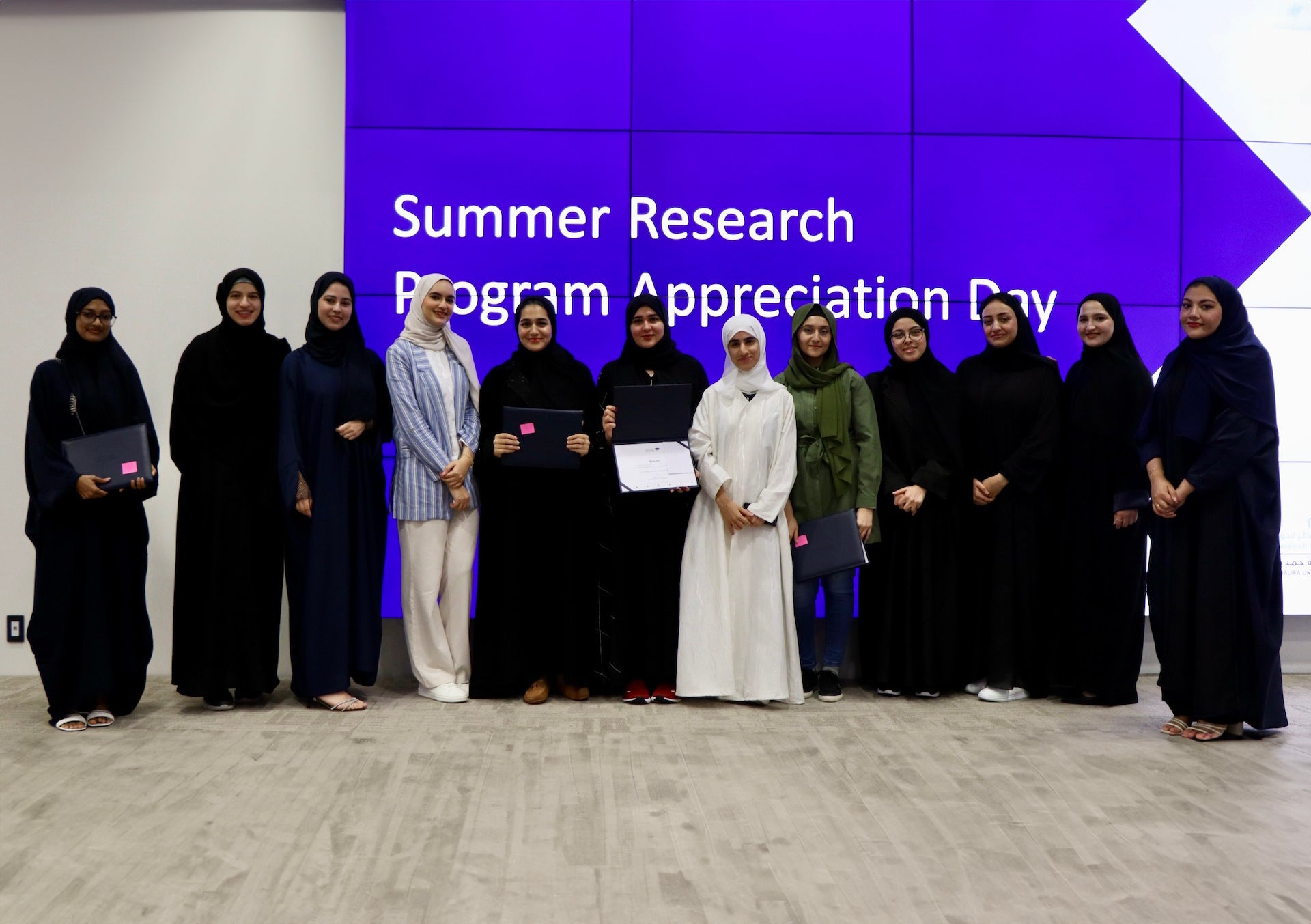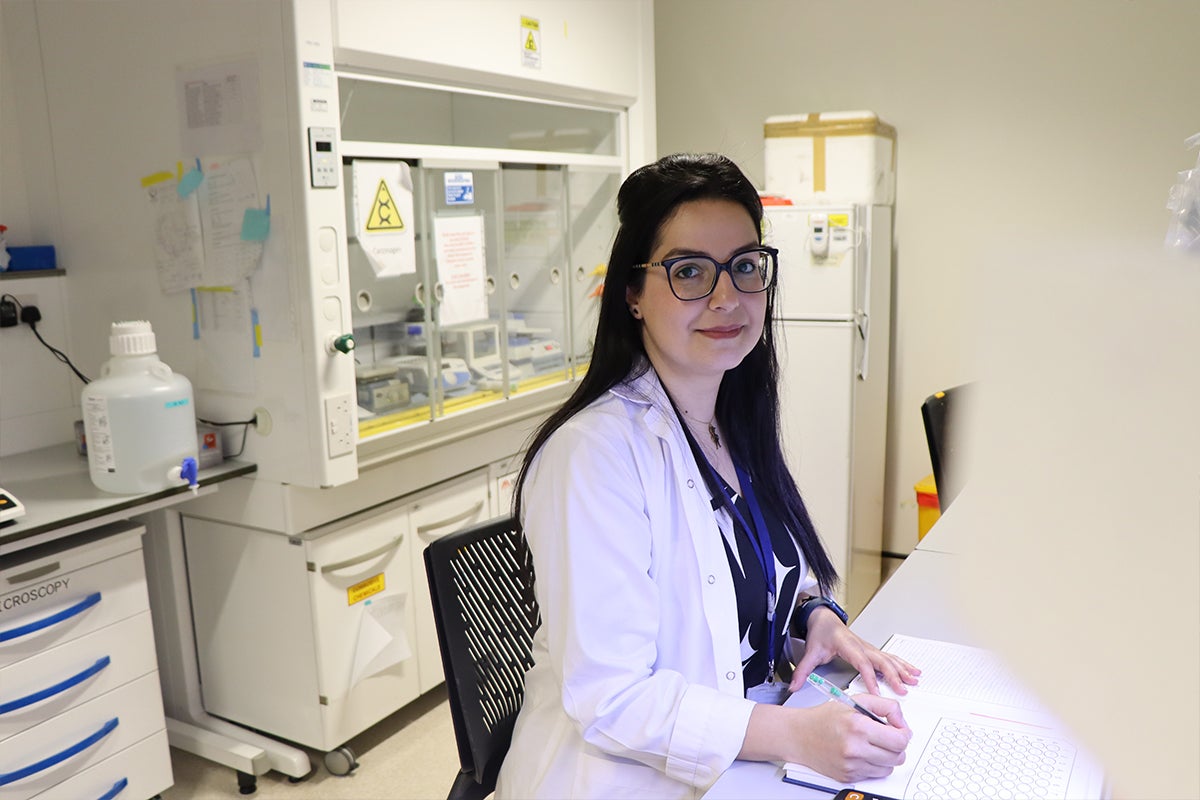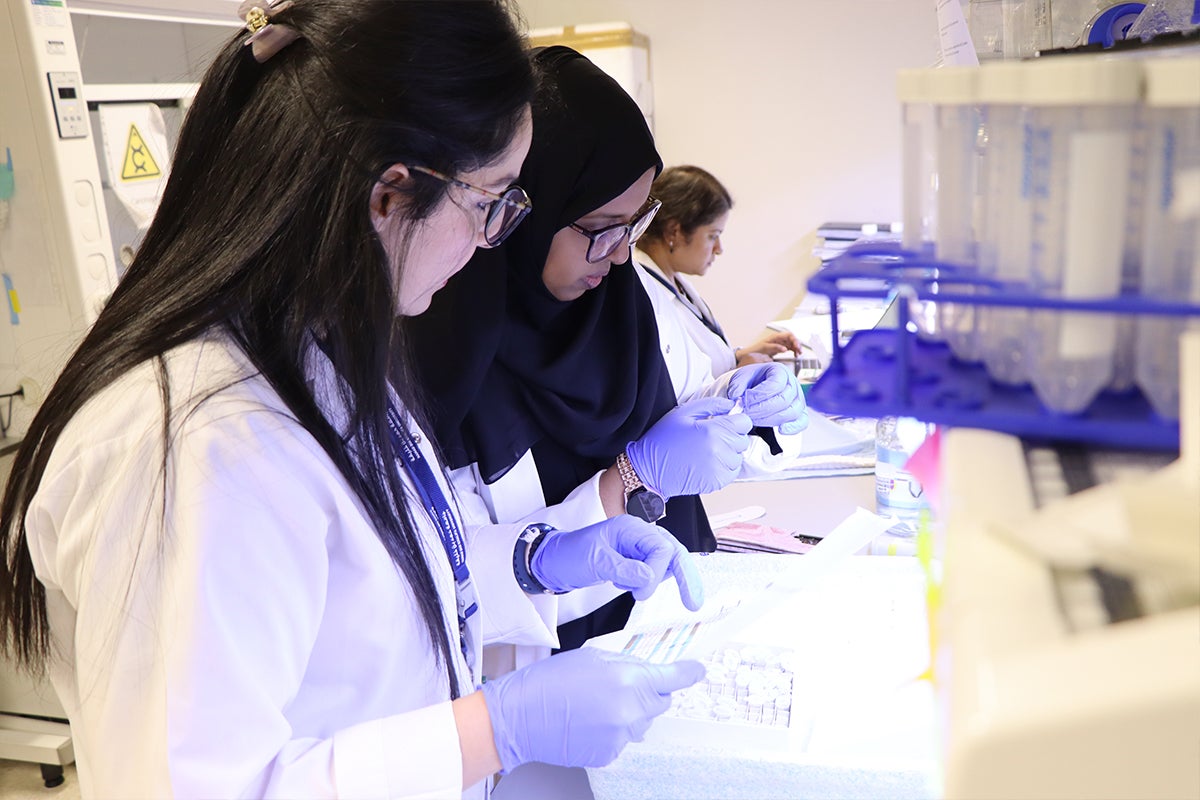By Dr. Sara Abdulla and Dr. Salam Salloum-Asfar
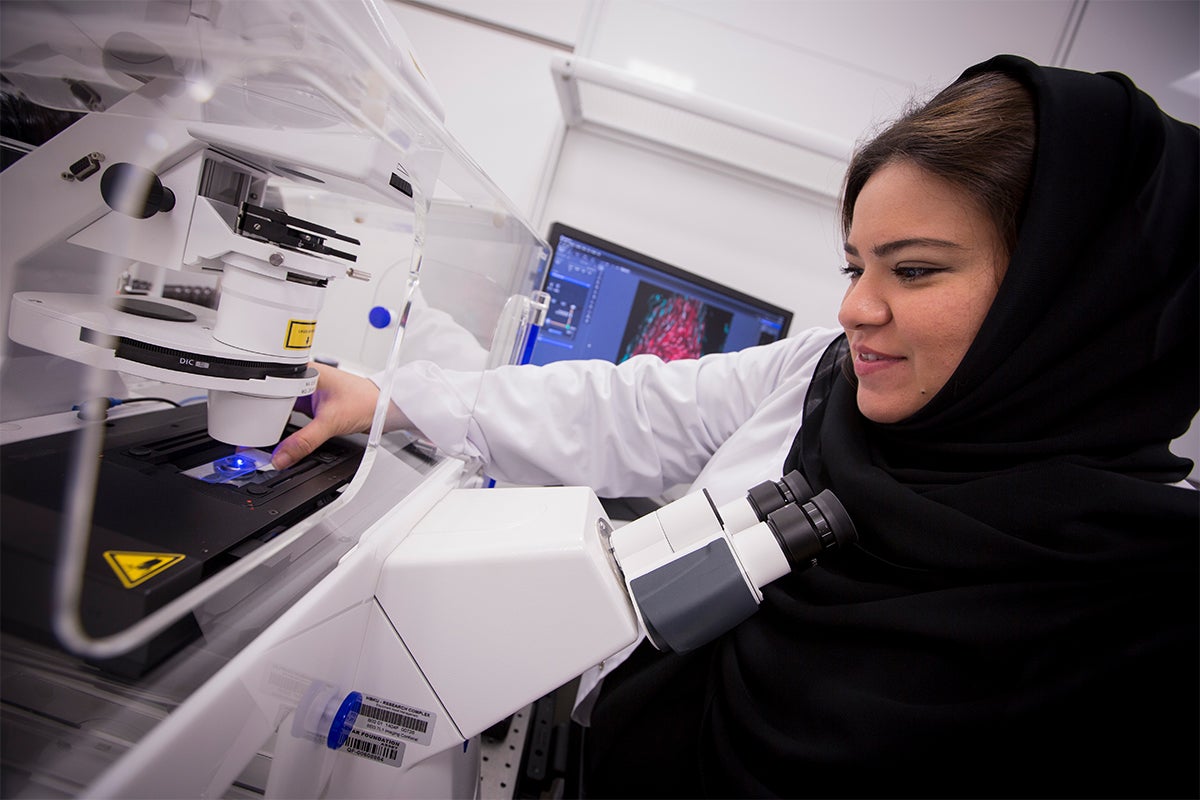
Autism Spectrum Disorder (ASD) is a complex and heterogeneous disorder with a wide range of phenotypes (set of observable characteristics) and symptoms that fall under the traditional boundaries of psychiatry, psychology, neurology, and pediatrics. Its multifactorial nature can be attributed to several genetic, epigenetic, and/or environmental factors. Several studies are being conducted globally to determine the precise genetic markers or causes of ASD, but no definitive answers or explanations have been found yet.
Current methods of diagnosing and screening for ASD often rely on subjective evaluations that are primarily based on language and social development. This approach, although it may present challenges, is commonly used and can contribute to valuable insights. However, it is important to be aware that especially in young children there is a possibility of missed diagnoses and lost opportunities for early intervention. While the Diagnostic and Statistical Manual of Mental Disorders, Fifth Edition (DSM-5) and Autism Diagnostic Observation Schedule, Second Edition (ADOS-2) have been worthwhile in identifying ASD, there have been observations regarding their relative effectiveness in detecting the condition in females, as their symptoms often exhibit subtlety and may be more challenging to detect, as well as in high functioning individuals. Additionally, it is worth noting that these tools may produce false results for individuals with autism who possess higher cognitive abilities, as well as for individuals with complex psychiatric profiles.
At the Neurological Disorders Research Center, Dr. Sara Abdulla (scientist) and Dr. Salam Salloum-Asfar (postdoctoral researcher) identified biological markers that predict ASD risk using prospective and retrospective cohort studies to assist in early diagnoses as well as to further understand ASD development, severity, mechanisms of influence on neurodevelopment, and potential application as therapeutic targets and clinical utility. Moreover, the lab developed a robust platform to elevate and improve existing diagnostic observations through more data-driven methodologies. These methodologies entail the identification of biomarkers, unraveling the connectome, transcriptome, and genome, as well as integrating prenatal components. Consequently, this multi-biomarker approach is more effective and objective to diagnostic neurodevelopmental disorders such as ASD.
As a result of establishing the early diagnostic platform in 2019, Dr. Abdulla’s lab has contributed to Qatar’s ASD research agenda, publishing in international journals and presenting at international conferences. The lab’s work highlights the potential to improve diagnostic accuracy and personalized treatment approaches for individuals with ASD, which in turn enables the stratification of subjects based on symptom severity and comorbidities, thus paving the way towards more precise intervention. Moreover, the potential impact of their results was recognized by the Industry Development and Knowledge Transfer (IDKT) office of Qatar Foundation and was submitted for a US provisional patent and PCT invention protection for their lab to devise ways of transferring their findings into a diagnostic kit.
Their study identified that a profile of ncRNAs, including miRNAs, long non-coding RNAs (lncRNAs), and circular RNAs (circRNAs), could serve as a signature of ASD symptomatology. They suggest that these ncRNAs could provide valuable insights into the pathogenesis of ASD and serve as a non-invasive diagnostic tool for ASD. The study also explored the potential use of ncRNAs as a way of predicting responses to ASD treatments. The authors propose that personalized medicine approaches using ncRNA-based biomarkers could lead to improved treatment outcomes for ASD. The study concludes by stating that more research is needed to fully understand the role of ncRNAs in ASD and to develop reliable biomarker assays for clinical use. The authors suggest that future studies should focus on larger, more diverse populations and standardized protocols to validate the use of ncRNAs as biomarkers for ASD symptomatology. They also propose that functional studies on the identified ncRNAs could provide insights into the pathogenesis of ASD and potential therapeutic targets.
Ultimately, the goal of the authors is to develop a transcriptomic/circulating ncRNA-based diagnostic kit for early detection and determination of ASD severity. The authors plan to reach TRL4 of the development stage, which involves developing a molecular early diagnostic test for ASD and stratifying subjects based on their level of severity so that precise therapies can be provided.
The full study can be accessed at: https://www.mdpi.com/1422-0067/22/12/6549







